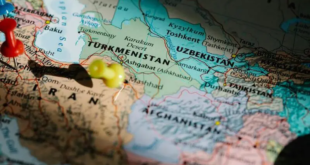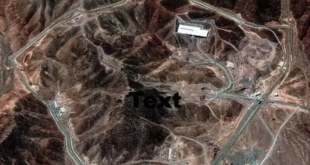VIENNA (Reuters) — Iran has expanded its uranium conversion facilities in Isfahan and reinforced its Natanz underground uranium enrichment plant, a US think tank said, amid growing concern over possible US military action. Talk of a US attack has topped the international news agenda since a report in New Yorker magazine said this month that Washington was mulling the option of using tactical nuclear weapons to knock out Iran’s subterranean nuclear sites.
Former Iranian President Akbar Hashemi Rafsanjani said on Sunday that any US attack on Iran over its nuclear programme would plunge the region into instability. UN Secretary General Kofi Annan also warned that US military intervention in Iran was not the best solution to resolve the nuclear standoff.
The Institute for Science and International Security (ISIS) said in an e-mail with commercial satellite photos attached sent to news media that Iran has built a new tunnel entrance at Isfahan, where uranium is processed into a feed material for enrichment. Just two entry points existed in February, it said.
“This new entrance is indicative of a new underground facility or further expansion of the existing one,” said ISIS, led by ex-UN arms inspector and nuclear expert David Albright.
ISIS also released four satellite images taken between 2002 and January 2006 it said showed Natanz’s two subterranean cascade halls being buried by successive layers of earth, apparent concrete slabs and more earth and other materials.
The roofs of the halls now appear to be eight metres underground, ISIS said.
The revelations came one week after Iran announced it had enriched uranium for use in power stations for the first time, stoking a diplomatic row over Western suspicions of a covert Iranian atomic bomb project. Iran says it seeks only nuclear energy for its economy.
The UN Security Council, wielding the threat of sanctions against Iran, has urged Tehran to halt enrichment activity and asked UN nuclear watchdog chief Mohamad Al Baradei to report on the Iranian response on April 28. Iran stood its ground during a visit by Baradei last week.
President George W. Bush has dismissed reports of plans for a US military strike against Iran as “wild speculation” and said he remained focused on diplomacy to defuse a standoff over Iran’s nuclear activities between Tehran and Western countries.
Taking no chances
But analysts said Iran was not taking any chances.
“Tehran is taking extraordinary precautions to try to protect its nuclear assets. But the growing talk of eliminating its nuclear programme from the air is pretty glib,” Albright told Reuters by telephone from Washington.
Despite Bush’s denial, Iran’s Rafsanjani said Tehran could not discount the possibility of a US military strike.
“We stress at the same time that it would not be in the interest of the United States, nor us,” Rafsanjani, who heads a council that arbitrates Iranian legislative disputes, said during a visit to Syria.
“Harm will not only engulf the Islamic Republic of Iran, but the region and everybody,” the influential Iranian leader told a news conference with Syrian Vice President Farouq Sharaa.
Annan told Spain’s ABC daily that the situation was already “too heated” to withstand any further aggravation.
“I still think the best solution is a negotiated one, and I don’t see what would be solved by a military operation,” he told the newspaper in an interview published on Sunday.
“I hope that the will to negotiate prevails and that the military option proves to be only speculation.”
Pope Benedict, in a speech televised to millions of viewers in more than 65 countries at the end of Easter Sunday mass, also joined the chorus of leaders calling for a diplomatic solution to the crisis.
“Concerning the international crises linked to nuclear power, may an honourable solution be found for all parties, through serious and honest negotiations…” he said in a clear reference to Iran.
Former White House counterterrorism head Richard Clarke wrote in Sunday’s New York Times that a US war with Iran could be even more damaging to America’s interests than the Iraq war.
In an op-ed article co-authored with Steven Simon, a former State Department official who also worked for the National Security Council, Clarke said Iran’s likely response would be to “use its terrorist network to strike American targets around the world, including inside the United States.”
 Eurasia Press & News
Eurasia Press & News

